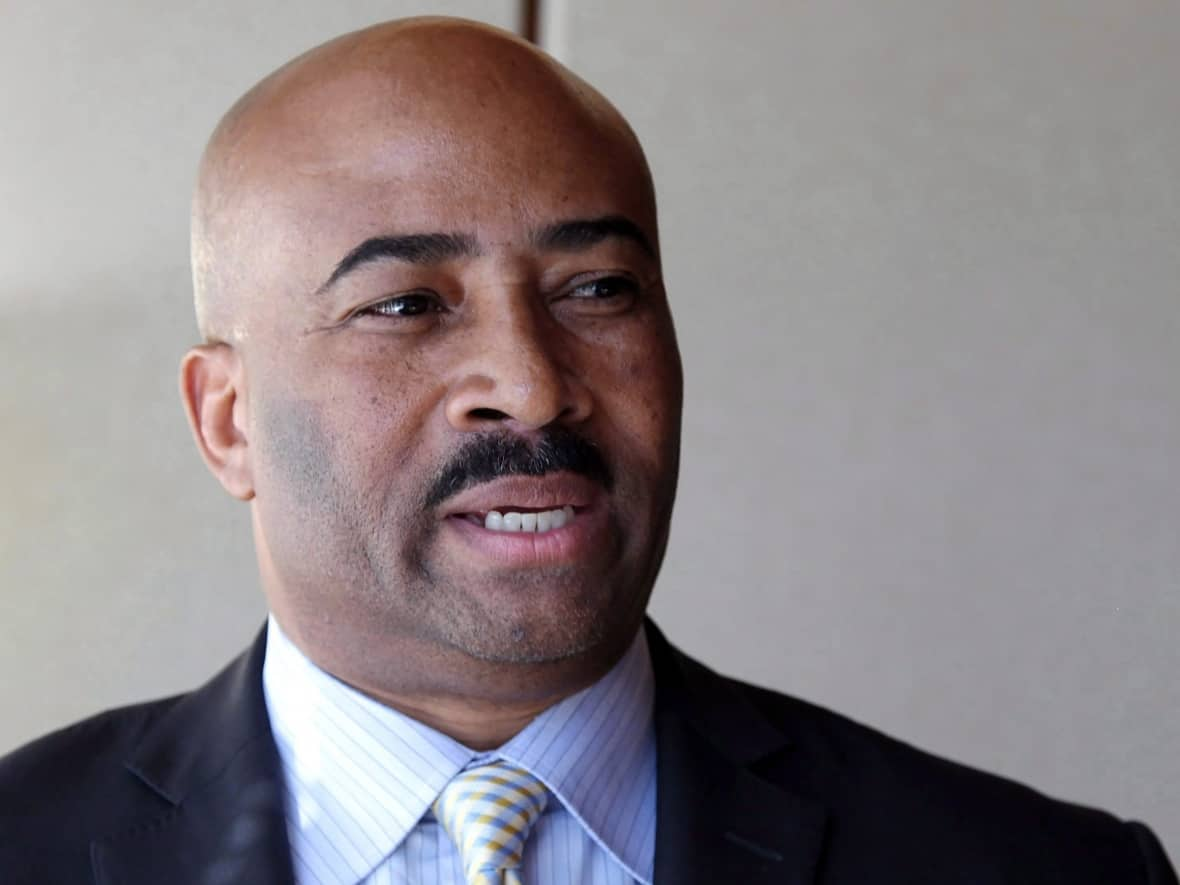Stripping former senators of 'honourable' title could be an unprecedented move

Senators voted last week in favour of stripping certain former members of their "honourable" title, a move that — if the Governor General follows through — could be unprecedented.
A motion in the upper chamber, which passed Wednesday, asks Gov. Gen. Mary Simon to take the title away from former senators convicted of indictable offences.
It calls on Simon specifically to take the title from former senator Don Meredith, who was charged with three counts of sexual assault in October and has previously been the subject of a number of Senate ethics committee probes — one of which recommended he be expelled due to his relationship with a teenage girl.
Meredith, a Pentecostal minister, was appointed to the Senate by former prime minister Stephen Harper in 2010. He resigned in May 2017 before he could be expelled, allowing him to keep his "honourable" title.
A spokesperson for the Privy Council Office (PCO) says the office is "not aware of any instances of former ministers or senators losing the right to use the title 'Honourable.'"
Who holds the title?
Meredith has a title that only a few Canadians can legally use. The title of "honourable" is given to senators — and members of the King's Privy Council, such as cabinet ministers — for life.
There are six categories of people in Canada who can use the title:
The Governor General of Canada, who is styled "right honourable" for life.
The Lieutenant Governor of a province, who is styled "honourable" for life.
A prime minister, who can use the title "right honourable" for life.
The chief justice of Canada. Former chief justice Beverley McLachlin, for example, will be "right honourable" for life. Other judges maintain the title of "honourable" while in office, but can be granted permission by the Governor General to continue using the title once they retire.
A privy councillor of Canada — such as current or former ministers of the Crown.
And senators, who are to be styled "honourable" for life. Members of the House of Commons are not given this distinction.
By virtue of his former position, Meredith retains certain parliamentary privileges, such as being permitted to attend state ceremonies.
At least one of his privileges has been rescinded already. Former senators generally enjoy barrier-free access to Parliament Hill.
But a spokesperson for the Senate's committee on internal economy, budgets and administration confirmed the Senate revoked Meredith's access in February 2018 and "advised him accordingly."
Will Meredith be the first to lose the title?
While Meredith likely would be the first senator to lose the title, he wouldn't necessarily be the first Canadian to do so.
Conrad Black, who was appointed a privy councillor in 1992, lost his "honourable" title as a result of being removed from the council in 2014.
CBC asked the Governor General's office if Simon would follow through on the Senate's request to strip Meredith of his title. A spokesperson deferred to the government.
"This is an issue for the government to consider. The Governor General acts on the advice of the government," the spokesperson said in an email.
CBC asked the Prime Minister's Office if the government would advise Simon to strip Meredith of his title. A spokesperson for Government House Leader Mark Holland replied, saying the government wouldn't comment because Meredith's case is still before the courts.
Meredith's lawyer Mustafa Sheikh said stripping the former senator of his title while his trial is in process would be unfair.
"The preemptive measures to discipline Mr. Meredith should be seen as an affront to the judicial process," he said in an email.
But Sen. Josée Verner, who introduced the motion, said the criminal charges have no bearing on the Senate's decision.

Instead, the motion cites two Senate ethics committee reports, one of which also recommends that Meredith lose his "honourable" title.
"If you look in the dictionary [at] the definition of honourable, clearly Sen. Don Meredith doesn't apply," Verner said.
Verner also said the Governor General doesn't need to act on the advice of the government in this instance.
"I understand that this is probably the first time she [has] had to face a challenge like this," Verner said.
"But for us in the Senate, we were unanimous."
Six former Senate employees and a parliamentary constable also have alleged Meredith acted inappropriately toward them while he was serving in the upper chamber.
The alleged behaviour included unwanted kissing and exposure of his penis, along with yelling and aggressive behaviour in the office.
Two of the alleged victims who have previously spoken with CBC said his alleged actions against them show he is not an "honourable" man.
Who else could be stripped of the title?
The motion may also apply to Raymond Lavigne, a former Quebec senator who served time for fraud and breach of trust.
Lavigne was convicted of defrauding the Senate with more than $10,000 in bogus travel expense claims in 2011. He was sentenced to six months in jail followed by six months of house arrest. He resigned from the Senate 10 days after the conviction but only began his jail term in 2013 after losing an appeal.
A judge heard that the former Liberal senator had enlisted one of his Senate employees to cut down 60 trees on his property near Ottawa during paid office hours, and filed mileage expense claims for trips he did not take.
Two other convicted former senators seem unlikely to be affected by the motion.
Former senator Eric Berntson, a Conservative who represented Saskatchewan, died in 2018, and the "Honourable" title only applies for the duration of a former senator's life. Berntson had resigned from the Senate in 2001 after a fraud conviction involving provincial expense allowances during his time as an member of the provincial legislature.
Former senator Michel Cogger, a Conservative who represented Quebec, was granted an absolute discharge in 2001 which quashed his conviction for influence peddling.


